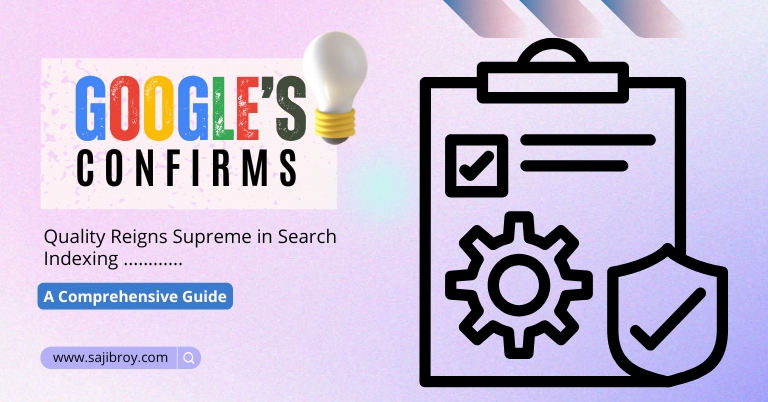Maximize your hotel’s SEO potential with a comprehensive guide on optimizing your Google Business Profile. With keyword research and high-quality content creation, you can attract organic traffic.
Verify your business, complete your profile, and keep your information accurate and consistent. Include relevant categories, professional photos, and encourage customer reviews. Take advantage of Google posts to enhance your local SEO. A strong Google Business Profile listing improves your online presence, drives traffic to your website, and boosts hotel bookings.
Follow these actionable steps to optimize your Google Business Profile and rank higher in search results.
Let's See the Topic Overview
Understanding The Importance Of Google Business Profile For Hotel SEO
Why Google Business Profile is crucial for hotel SEO?
Google Business Profile (GBP) is an essential tool for hotel SEO, providing an opportunity for hotels to showcase their property and attract potential guests. With GBP, you have the ability to manage your business information, interact with customers, and gain visibility in local search results.
How does Google Business Profile impact search rankings for hotels?
Having a well-optimized GBP listing can significantly impact your hotel’s search rankings. When users search for hotels in a specific location, Google uses various ranking factors to determine which listings to display. By optimizing your GBP profile with relevant keywords, accurate information, and engaging content, you increase your chances of ranking higher in search results and attracting more guests.
The benefits of optimizing your Google Business Profile listing
Optimizing your GBP listing offers numerous benefits for your hotel. Firstly, it enhances your online visibility, ensuring that your business appears in local search results and on Google Maps. This increased visibility can drive more organic traffic to your website, resulting in higher booking rates. Additionally, a well-optimized GBP listing can improve your online reputation by showcasing positive reviews, photos, and frequently asked questions, building trust with potential guests. Moreover, it allows you to engage directly with customers through features such as messaging and Google Posts, creating a more personalized experience and increasing customer satisfaction.
The role of Google Business Profile in local search results
Google Business Profile plays a vital role in local search results, as it is the primary source of information for Google when it comes to displaying local businesses. When a user searches for hotels in a specific location, Google uses its algorithm to determine which listings are the most relevant and trustworthy. By optimizing your GBP profile according to best practices, you increase your chances of being featured in the local three-pack (the top three listings that appear in local search results), gaining maximum visibility and potential website traffic. Therefore, it is crucial for hotels to invest time and effort in maximizing their GBP listing to rank higher in local search results and attract more guests.
Optimizing Your Google Business Profile Profile For Maximum Visibility
When it comes to hotel SEO, optimizing your Google Business Profile (GBP) profile is crucial for maximizing your online visibility. Your GBP profile is often the first impression a potential guest has of your hotel, so it’s important to make it count. Here are some key steps to optimize your GBP profile:
Claiming and Verifying Your Google Business Profile Listing
The first step in optimizing your GBP profile is to claim and verify your listing. This ensures that you are the rightful owner of your hotel and gives you control over your profile. Claiming and verifying your listing is a simple process that involves following the instructions provided by Google. Once verified, you can start optimizing your profile for maximum visibility.
Completing All the Required Information in Your Profile
To fully optimize your GBP profile, it’s crucial to complete all the required information. This includes your hotel’s name, address, phone number, website URL, and business hours. Make sure to provide accurate and up-to-date information so that potential guests can easily find and contact your hotel. Including relevant keywords in your business description can also help improve your visibility in search results.
Choosing the Most Relevant Categories for Your Hotel
When optimizing your GBP profile, selecting the most relevant categories for your hotel is essential. Categories help Google understand the nature of your business and match it with relevant search queries. Choose categories that accurately describe your hotel’s offerings, such as “luxury hotel,” “beachfront resort,” or “boutique hotel.” This will help attract the right audience to your profile.
Ensuring Consistency of Your NAP (Name, Address, Phone Number) Across the Web
Consistency is crucial when it comes to your NAP (Name, Address, Phone Number) information across the web. Inconsistencies can confuse both Google and potential guests, leading to a negative user experience. Ensure that your NAP information is consistent on your website, social media profiles, and other online directories. This will help Google understand and trust your hotel’s information, improving your visibility in local search results.
Including High-Quality and Engaging Pictures in Your Profile
Visual content plays an important role in attracting potential guests to your hotel. Include high-quality and engaging pictures of your hotel’s rooms, amenities, restaurants, and surroundings in your GBP profile. Visuals help potential guests visualize their experience at your hotel, increasing the likelihood of bookings. Optimize your pictures by adding relevant keywords to the image file names and alt tags to improve search engine visibility.
Encouraging and Managing Customer Reviews on Google Business Profile
Customer reviews are a powerful asset for your hotel’s online reputation and SEO. Encourage your guests to leave reviews on your GBP profile by providing excellent service and incentives, such as discounts or giveaways. Respond promptly to both positive and negative reviews to show potential guests that you value their feedback. A high volume of positive reviews can boost your hotel’s visibility and credibility in search results.
Leveraging the Power of Google Business Profile Posts to Promote Your Hotel
Google Business Profile posts allow you to share updates, offers, and events directly on your GBP profile. Take advantage of this feature to promote your hotel’s special offers, upcoming events, and local attractions. Each post can include a call-to-action button, such as “Book Now” or “Learn More,” to encourage potential guests to take action. Regularly posting on your GBP profile not only engages your audience but also improves your visibility in local search results.
Implementing Effective SEO Strategies For Your Hotel Website
Implementing effective SEO strategies for your hotel website is crucial for increasing online visibility, driving organic traffic, and boosting bookings. By following these proven techniques, you can improve your search engine rankings and attract more potential guests. Let’s dive into each strategy:
Conducting keyword research specific to hotels
Conducting thorough keyword research is the first step to optimizing your hotel website for search engines. It involves identifying the most relevant and profitable keywords that potential guests are using to search for hotels in your area.
To find the right keywords, use tools like Google Keyword Planner, SEMrush, or Moz Keyword Explorer. Focus on long-tail keywords that are specific to your hotel’s location and amenities. These keywords typically have lower competition and higher conversion rates.
Optimizing your website content with relevant hotel keywords
Once you have identified your target keywords, it’s time to optimize your website content using them. Incorporate these keywords naturally into your page titles, headings, meta descriptions, and throughout your website copy.
Remember that keyword optimization should be done in a user-friendly way while keeping the content informative and engaging. Avoid keyword stuffing, as this can hurt your search rankings. Instead, focus on providing high-quality content that satisfies the user’s intent.
Adding schema markup for local businesses to your website
Schema markup is a powerful tool that helps search engines understand the content on your website. For hotels, it’s essential to add schema markup for local businesses to provide search engines with important information about your hotel, such as its name, address, phone number, and hours of operation.
To add schema markup, use the JSON-LD format and include relevant schema types, such as LocalBusiness, Hotel, and Review. This will enhance your website’s visibility in local search results and increase the likelihood of appearing in Google’s Knowledge Graph.
Optimizing your website’s meta tags for local search
Meta tags play a crucial role in attracting visitors from search engine result pages. For your hotel website, it’s important to optimize your title tags and meta descriptions with relevant local keywords.
Ensure that your title tags are concise, descriptive, and include your hotel’s location. Use compelling language and highlight your unique selling points. Similarly, optimize your meta descriptions by including persuasive calls-to-action and reinforcing your hotel’s value proposition.
Creating high-quality and informative content for your hotel website
Creating high-quality and informative content is essential for both user engagement and search engine optimization. Craft compelling blog posts, guides, and articles that provide valuable information to your potential guests.
Write about local attractions, upcoming events, or insider tips for exploring the area. Incorporate relevant keywords naturally throughout your content while maintaining its overall readability and value. High-quality content not only attracts organic traffic but also encourages social sharing and backlinking, further boosting your SEO efforts.
Improving website loading speed for a better user experience
Website loading speed is a crucial factor in both user experience and search engine rankings. Slow-loading websites can result in high bounce rates and lower search rankings.
To optimize your website’s loading speed, compress images, minimize CSS and JavaScript files, and leverage browser caching. Use tools like Google PageSpeed Insights or GTmetrix to identify areas for improvement and follow their recommendations to enhance your website’s performance.
By implementing these effective SEO strategies for your hotel website, you can enhance your online visibility, attract more potential guests, and drive bookings. Remember to regularly monitor your website’s performance, track keyword rankings, and make necessary adjustments to stay ahead of the competition.
Leveraging The Power Of Online Reviews For Hotel SEO
Online reviews have become an integral part of the decision-making process for travelers. The impact of these reviews goes beyond just influencing potential guests. They also play a crucial role in your hotel’s search rankings. In this section, we will explore strategies to leverage the power of online reviews to boost your hotel’s SEO performance.
The impact of online reviews on hotel search rankings
Online reviews have a direct impact on your hotel’s search rankings. Positive reviews act as endorsements from satisfied guests, signaling to search engines that your hotel provides a positive experience. Search engines like Google prioritize businesses with a high number of positive reviews, considering them more relevant and trustworthy. By actively managing and encouraging online reviews, you can significantly improve your hotel’s visibility and search rankings.
Strategies for encouraging positive reviews from guests
Encouraging positive reviews from your guests is essential for enhancing your hotel’s online reputation.
Here are some strategies to prompt guests to leave positive feedback:
- Provide exceptional service: Deliver an outstanding guest experience by ensuring personalized service, addressing their needs, and going above and beyond their expectations.
- Request reviews at the right time: Ask guests to share their feedback after their stay while the experience is still fresh in their minds. Consider sending a follow-up email with a gentle request to leave a review.
- Make it easy: Simplify the review process by providing clear instructions and links to popular review platforms. Mention the importance of their feedback in helping your hotel improve and meet guest expectations.
Responding to both positive and negative reviews on multiple platforms
Responding to reviews, both positive and negative, is crucial for maintaining a positive online reputation.
Here’s how you can effectively handle reviews on multiple platforms:
- Acknowledge positive reviews: Take the time to appreciate guests who leave positive feedback. Thank them for their valuable input and mention specific aspects they enjoyed about their stay. This not only shows your gratitude but also builds a rapport with future potential guests.
- Address negative reviews promptly: When faced with negative reviews, respond promptly and professionally. Show empathy and apologize for any shortcomings the guest may have experienced. Offer a solution or invite them to contact the hotel directly to resolve the issue.
- Encourage offline resolution: When responding to negative reviews, encourage guests to reach out to you directly to address their concerns. This allows you to resolve the issue privately and demonstrate your commitment to guest satisfaction.
Monitoring and managing your online reputation effectively
Monitoring and managing your online reputation involves actively tracking and responding to reviews across different platforms. Here are some tips to effectively monitor and manage your online reputation:
- Set up Google Alerts: Create Google Alerts for your hotel name and relevant keywords to receive notifications whenever new reviews or mentions are posted.
- Use reputation management tools: Consider using online reputation management tools that streamline the review monitoring process, allowing you to respond promptly.
- Regularly check review platforms: Regularly monitor popular review platforms, such as TripAdvisor or Yelp, to stay updated on guest feedback and respond accordingly.
Leveraging online reviews to improve your hotel’s overall SEO performance
Online reviews not only impact your hotel’s search rankings but also influence the decision-making process of potential guests. By consistently generating positive reviews and actively engaging with feedback, you can improve your hotel’s overall SEO performance. Positive reviews act as social proof, attracting more guests and increasing your hotel’s visibility in search results.
Leveraging the power of online reviews is crucial for hotel SEO. Actively encourage positive reviews, respond to both positive and negative feedback, and effectively manage your online reputation. By doing so, you will enhance your hotel’s SEO performance, increase guest trust, and attract more bookings.
Tracking And Analyzing Your Hotel SEO Efforts On Google Business Profile
Tracking and analyzing your hotel SEO efforts on Google Business Profile is crucial for ensuring that your online presence is optimized for maximum visibility and success. By monitoring key SEO metrics and making data-driven decisions, you can continuously optimize your hotel’s SEO strategies for better performance and increased bookings.
Setting up Google Analytics to track website performance
One of the first steps in tracking your hotel SEO efforts is setting up Google Analytics. This powerful tool allows you to monitor and analyze various aspects of your website’s performance, providing valuable insights into visitor behavior, traffic sources, and conversion rates.
To set up Google Analytics, follow these steps:
- Create a Google Analytics account and obtain your unique tracking code.
- Add the tracking code to your website’s HTML, preferably in the header section.
- Verify that the tracking code is working properly by visiting your website and checking for data in your Google Analytics account.
Monitoring key SEO metrics such as organic traffic, bounce rate, and conversion rate
Once you have set up Google Analytics, you can start monitoring key SEO metrics to assess the performance of your hotel’s website.
Some important metrics to track include:
- Organic traffic: This metric indicates the number of visitors who found your website through organic search results. A higher organic traffic indicates successful SEO efforts.
- Bounce rate: The bounce rate refers to the percentage of visitors who leave your website after viewing only one page. A low bounce rate indicates that visitors are engaging with your content and finding it relevant.
- Conversion rate: This metric measures the percentage of visitors who complete a desired action, such as making a reservation or filling out a contact form. Monitoring your conversion rate helps you assess the effectiveness of your website in driving bookings.
Using Google Search Console to identify and resolve website issues
In addition to Google Analytics, Google Search Console is another valuable tool for tracking and analyzing your hotel SEO efforts. It provides insights into how your website is performing in Google search results and helps identify and resolve website issues that may affect your rankings.
Some of the key features of Google Search Console include:
- Monitoring your website’s indexing status and ensuring that all pages are properly crawled and indexed by Google.
- Identifying and resolving crawl errors, such as broken links or problematic pages.
- Viewing search analytics data, such as impressions and click-through rates, to gain insights into keyword performance and user behavior.
Tracking the performance of your Google Business Profile listing
Your Google Business Profile listing plays a crucial role in improving your hotel’s local SEO and attracting potential customers. To track the performance of your listing, you can use the Google Business Profile Insights feature.
Google Business Profile Insights provides valuable data on:
- The number of views your listing receives.
- How customers found your listing.
- The actions customers take on your listing, such as calling your hotel or visiting your website.
Making data-driven decisions to continuously optimize your hotel SEO efforts
By tracking and analyzing the metrics mentioned above, you can make data-driven decisions to optimize your hotel’s SEO efforts on Google Business Profile. Use the insights gained from Google Analytics, Google Search Console, and Google Business Profile Insights to identify strengths, weaknesses, and areas for improvement.
For example:
- Identify keywords that are driving a significant amount of organic traffic and focus on optimizing content related to those keywords.
- Monitor and address high bounce rates on specific pages by improving the quality and relevance of the content.
- Optimize your Google Business Profile listing by adding accurate and up-to-date information, encouraging reviews, and regularly posting relevant updates.
By continuously tracking, analyzing, and optimizing your hotel’s SEO efforts on Google Business Profile, you can ensure that your online presence is optimized for maximum visibility and success in the highly competitive hotel industry.
Conclusion
Maximizing your hotel’s SEO through Google Business Profile is crucial for attracting more potential guests. By implementing the strategies outlined in this comprehensive guide, you can optimize your business listing and improve local search results. From verifying your business to maintaining accurate profile information and encouraging reviews, each step plays a vital role in enhancing your online visibility.
By following these tips, you can boost your hotel’s online presence and ultimately drive more bookings. Don’t miss out on the opportunity to leverage your Google Business Profile for maximum SEO success.



![6-Month Local SEO Plan [Download Your Complete Proposal Template]](https://www.sajibroy.com/wp-content/uploads/2025/01/6-Month-Local-SEO-Plan-Download-Your-Complete-Proposal-Template.jpg)








